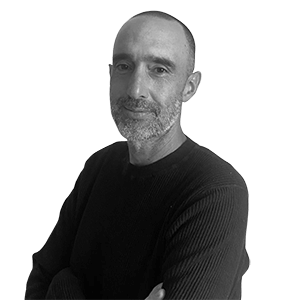I have the smell of the forest stuck in my genes


I come from a family of small farmers, charbonniers and rabassaires. This activity, in fact, is what allowed my great-great-grandparents to buy this small property, rebuild a house from the four remaining stones, and make progress, or at least survive.
Some of the fields I still call "land" today are land reclaimed from the forest. They cut it down to sell the charcoal and firewood, pulled out the stubble, tilled it, leveled it, and, in exchange for this work, earned an income that helped pay off the debt incurred for the purchase of the property and earned more for farming. It was a matter of blind faith in possibility, in one's own abilities, and in the rewards that effort and physical labor offer to those with no other means to progress in this life. We come from here, and this is their legacy.
These fields still bear the names of the Rabassada del Cuní, the Rabassada de Mercader, or the Rabassada Grande de Casa. Yes, beyond the enclosure, plot, and subplot numbers assigned by the land registry, the fields have names and surnames that often explain much more than a simple 2:12:5.
And I suppose all that aroma of smoke, sweat, and firewood must have left me with a bit of a genetic attachment, because, for me, the forest makes me happy. It makes me happy to be there and be there, of course, like everyone else, but above all, it makes me happy to work, to tire myself out, and to see the results.
Look, it's not exactly a big deal; things that make sense tend to bring that kind of deep happiness that's rooted in the foundation of who we are. And that, or the dopamine we secrete when we do this, surely has something to do with the evolutionary mechanisms that have allowed us to continue being us until now.
Forgive this rhetorical excursion into cheap anthropology. I'll quickly bring the arguments down to earth and return to the prosaic nature to which this article aspires. But sometimes, with everything against us, it's worth trying to understand how we got here so as not to fall into the temptation of believing in the shortcuts that chance or miraculous possibilities beg for.
The fact that we currently have cattle at home, that is, a type of livestock closely linked to the land, means that naturally (I mean without any management plan approved by a government official) many of the surrounding fields are meadows, poteras, or fodder crops, which are crops that fire doesn't like very much, strips of forest with the undergrowth cleared, probably too much; overgrazed even when viewed from agroecological perspective.
And what do we do with the rest of the forest? Well, when we can, we open paths and make strips and clearings with the idea that, if it's not grazable, at least it's passable for the herd. And every twenty or thirty years, we harvest wood or firewood, which we used to do ourselves because we had the time, knowledge, and resources to do so (I paid for my corral with one of these efforts), but now, with the pace imposed by the current peasant model, we must do so.
And what does this mean? Well, that once it's done, there will be hardly any profit left, and that the few profits that remain will have to be dedicated to leaving a forest that doesn't need to be a garden, but at least permeable to the passage of the flock. Therefore, if we do it, it will be more out of responsibility, or because of that kind of genetic imprint of those who know what they know, rather than pragmatists, that led our great-great-grandparents to do it and that, ultimately, have made us who we are.
I reckon we're the last generation that will understand the forest and its surroundings in this way. I hope, for the sake of the generations to come, that they find a connection that will be useful to them; useful to them, that is, to avoid extinction.
And I know the temptation is strong, and we're all constantly compelled to offer opinions and form opinions on any current issue. "Fires go out in winter," you may say while your sister-in-law is helping herself to her fourth cup of ratafia during the Sunday afternoon meal, or "What we need are more herds," but I ask you, please, not to turn what I just told you into some sort of universal thesis. Especially since mine is just a particular case that, over the years, has adapted to a very specific reality. And, although the country is as small as a matchstick, the realities and the ways of adapting to them are as changing and diverse as the random shapes of a flame just before it goes out.
It is the grace of activities linked to the environment that, by living, either perpetuate it or destroy it.
